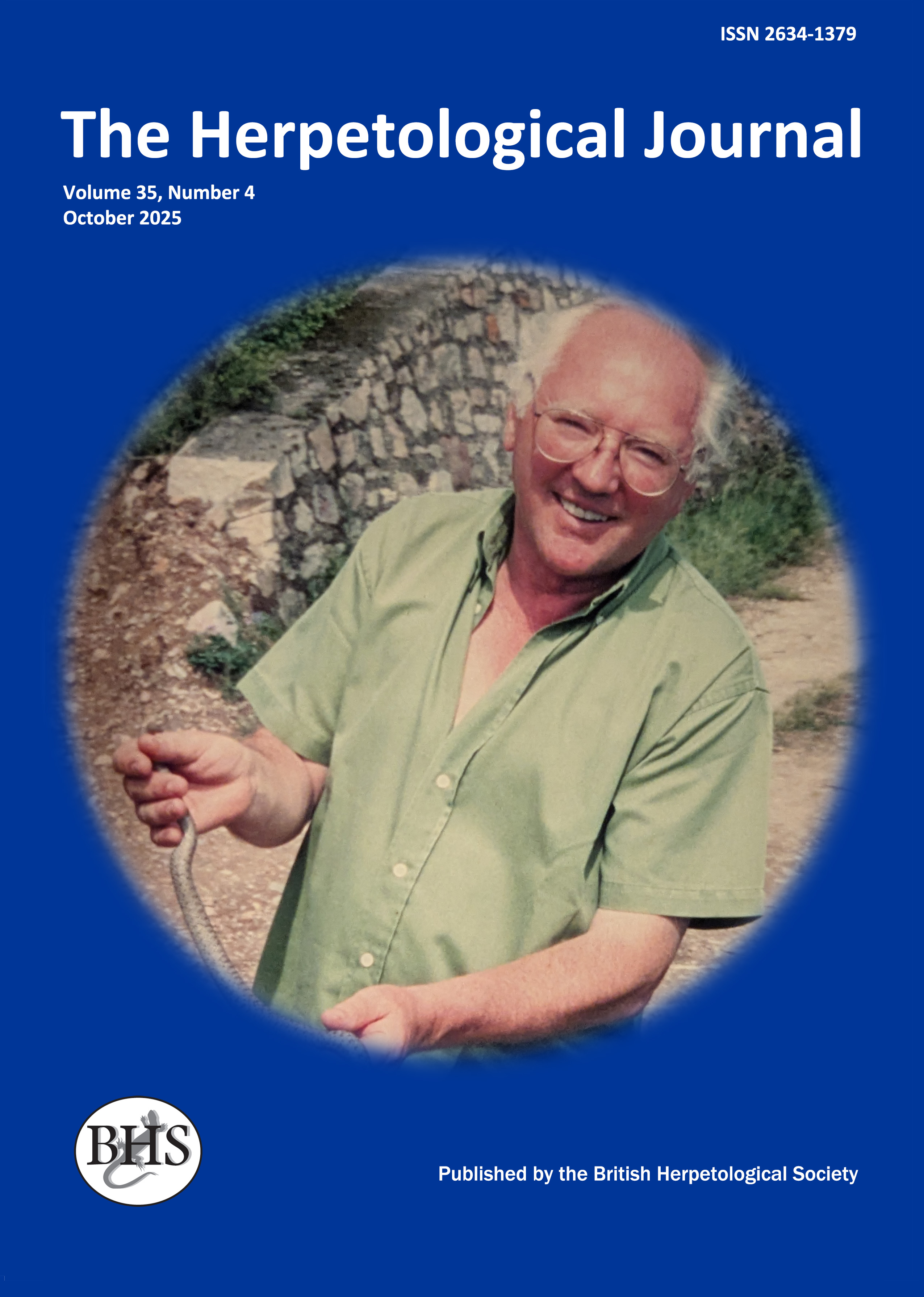
The Herpetological Journal
The Herpetological Journal is the Society's prestigious quarterly scientific journal. Articles are listed in Biological Abstracts, Current Awareness in Biological Sciences,Current Contents, Science Citation Index, and Zoological Record.
ISSN 0268-0130
2023 Impact Factor for the Herpetological Journal is 1.1, with the Journal sitting just below Quartile 2 in Zoology, at percentile 46.9
pdf 04. Partitioning of water within the alligator (Alligator mississippiensis) egg after 60 days of incubation
1489 downloads
Open Access
pp.554-558
Authors: D. C. Deeming And M. W. J. Ferguson
Abstract: Eggs of Alligator mississippiensis were incubated up to day 60 of incubation under either dry conditions (on metal shelves, without a substrate) or wet conditions (on vermiculite). Incubation temperatures were 30°C and 33°C. Eggs on the shelves lost water during incubation; water loss from eggs on vermiculite was small, and in some cases, negligible. On day 60, after incubation at 30°C, eggs incubated on shelves had significantly less amniotic fluid and yolk sac than eggs incubated on vermiculite. In eggs incubated at 33°C, on day 60 amniotic fluid was absent and the mass of the yolk sac was smaller in eggs incubated under dry conditions. Embryo mass and the amount of allantoic fluid were unaffected by the extent of water loss from the eggs at both temperatures. The mass of allantoic fluid was correlated with the mass of the egg on day 60. Yolk sac mass at both temperatures was not correlated with egg mass on day 60 but was correlated with the water lost from the egg. These results suggest that (1) in alligator eggs, loss of water is borne primarily by the yolk sac; and (2) that retention of water in the allantois may be associated with a need to prevent a deleterious build-up of waste metabolites. This contrasts with the situation in avian eggs where water loss is borne primarily by the allantois and embryonic tissues.

